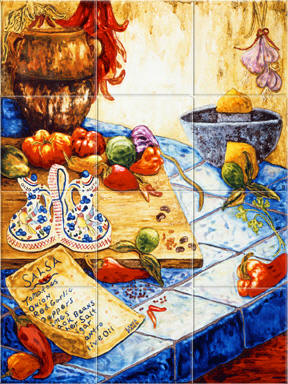
As a newcomer to the country of Germany, during my second month, my mother believing I would be cold sent me a blanket to stay bundled. Since she had grown up in an underdeveloped nation she held the credence that the United States was a super-power and therefore no other nation could match or surpass the American level of comfort. Although it was a sweet gesture; she was not aware that Germany exports textiles and their well-made blankets, made locally, are expensive and made to last.
I was in for many twists and turns partaking in my new life. After making my bed with my blanket, I took the gift box and casually threw it into the dumpster, went back inside the apartment and within minutes there was a furious rapt on my door. A neighbor from the floor below spoke in a fast pace, never pausing to inhale, the nerve alongside his temple bulging, and although it was late morning, I began to notice the dank smell of alcohol on his breath. I had no idea what he was saying and shrugged my shoulders, saying, “ich kann nicht verstehen.” He looked at me sternly, and pointed toward the dumpster, “you mussen recycle!”
In Germany, Umweltsünden (Environmental Sins) are so rare that when a person commits one it often makes the local news. As a foreigner I made several small sins during my first year in the country– although none big enough to hit the press. The thought of my petty offense reminded me of being a youngster playing hiding-go-seek, I laid under my parents bed on the box spring was a warning tag that read if removed, the crime was punishable by law. Being a rebel, I ripped it off with an ear shattering tear waiting for the swarms of police to come knocking.
Germans have an almost religious zeal when it comes to recycling. Eventually, I learned how to sort rubbish. Boxes had to be broken down and I had multiple colored trash bins; one for cartons and paper, a second for plastics and metals, another for glass, such as olive oil or broken China and a fourth bin was for biodegradable items often used as a compost heap. Juice and water were bottled and purchased at a specialty beverage store, with a deposit fee or Pfand, that was added to their cost, when returned, it was refunded.
As I separated my items, I began to assimilate the importance of being aware of the atmosphere and its relationship to nature. I started to view throwing something away that otherwise might be recycled as ignorance. By integrating environmentally friendly values I bought recycled paper, took my own shopping bag to the grocery store; including my own egg carton to reuse, rode my bike, and ate local grown foods.
Twenty years have lapsed since that time and in the States some of these ideas are beginning to catch-on. Last week I was given a canvas shopping bag at Fresh and Easy; a start, but there is still a long way to go.
Some of the short-sighted environmental errors I see are a part of the American landscape, because we live in a time where thinking about the future and individuality are dying concepts.
Personally, I do not agree with Starbucks for being a major culprit of waste by using double cups and placing a lid on a drink. If I had my way, I'd ban SUV's for being gas guzzlers. And RV's would be stationary, converted into housing or shelters. Public lights should be on timers, not on 24/7. I could go on, citing infractions, but if more Americans thought of the environment as a moral and spiritual challenge, and did their part in becoming conscious to decrease waste disposed in landfills and incinerators we reduce greenhouse gas emissions, prevent waste, and by recycling we expand reuse and move the country in the direction of greater climate stability.
http://www.youtube.com/watch?v=0WxgeYXCjM8
http://www.youtube.com/watch?v=0WxgeYXCjM8
































